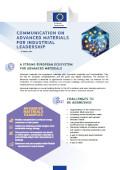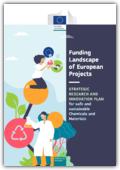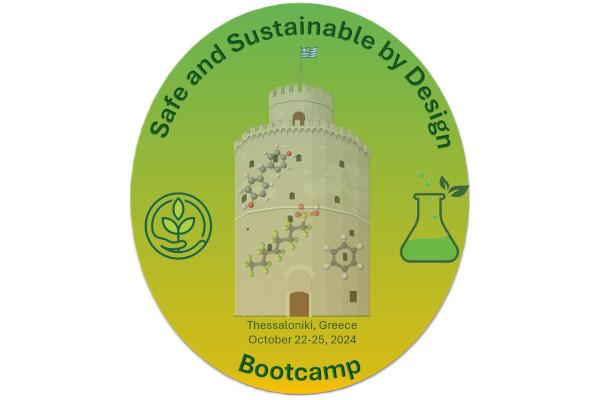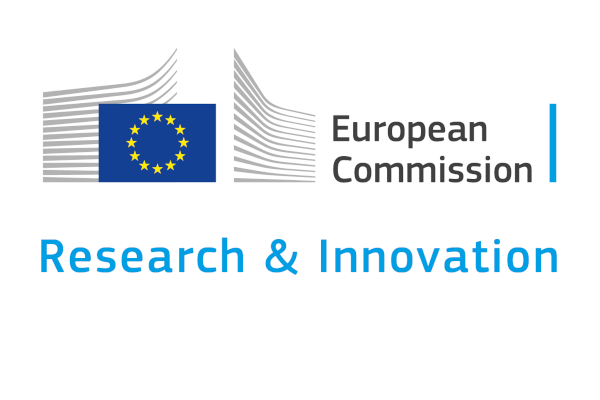Why does the EU support research and innovation for chemicals and advanced materials?
Chemicals and advanced materials, including nanomaterials, are essential for our well-being and the high living standards of our societies. They are used in all sectors (e.g. health, electronics, energy, mobility and housing), in industrial products and consumer goods such as construction materials, lightweight materials, batteries, packaging, smart phones, cleaning products, cosmetics and many more.
Advanced materials and chemicals have novel or enhanced properties and improved performance, but they have to be safe, sustainable and circular too. Research and innovation is key in achieving all this.
The European Green Deal binds the EU to become climate neutral by 2050 through green growth and innovation, offering opportunities for all citizens and also protecting biodiversity.
Key legislation
- The EU’s Industrial Strategy and the Green Deal Industrial Plan introduced the notion of key enabling technologies, including advanced materials and critical raw materials enhancing the necessary skills for an open, fair-trade and net-zero industry
- The Zero Pollution Action Plan aims to decrease air, water and soil pollution to levels no longer harmful to health and natural ecosystems and that respect the planetary boundaries. In 2022 the Commission published a report on how results from Horizon 2020 projects contribute to the nine flagships of the Zero Pollution Action Plan
- The Chemicals Strategy for Sustainability announced two main research and innovation tools: 1) Safe and sustainable by design criteria for chemicals and 2) Strategic Research and Innovation Plan for chemicals and materials
- The Sustainable Products Initiative aims to make every aspect of the design, production, use and sale of products available on the EU market more environmentally-friendly and circular as well as to address the presence harmful chemicals in certain products
- The Critical Raw Materials Act recognises the importance of advanced materials for materials efficiency and circularity and announces a coordinated plan with EU countries on advanced materials
- The Net Zero Industry Act calls for stronger manufacturing capacities of clean technologies in the EU – requiring also innovative advanced materials
All documents published for the different activities on research and innovation on chemicals and advanced materials can be found in the documents section.
Subscribe to our newsletter to receive news and upcoming events on R&I Industrial Transformation.
Maintaining Europe's leadership in advanced materials
Europe needs continuous innovation to keep its strong position in the development of advanced materials and ensure its strategic autonomy.
Therefore, on 27 February 2024 the Commission has adopted a Communication on ‘Advanced Materials for Industrial Leadership’ setting out a series of actions from research to market uptake to boost the design, development, and use of advanced materials in Europe.
One of the implementation actions in the research and innovation section of the Communication is the proposal for a co-programmed partnership with industry: Innovative Materials 4 EU (IM4EU).
Background information
- On 7 February 2022, high-level representatives from European research institutes and industries shared a Materials 2030 Manifesto with Commissioner Gabriel. On 22 June 2022 the stakeholder community published the Materials 2030 Roadmap and on 19 April 2024 the Strategic Materials Agenda.
- The European Commission also has an Expert Group on advanced materials. The mission of the group is to deepen the exchange of information between EU countries, Associated countries and the Commission in the field of chemicals and advanced materials within Horizon Europe.
- The European Commission has also been supporting the safety evaluation of nanomaterials by different actions: the EU NanoSafety Cluster and the Malta Initiative support the work of theOrganisation for Economic Co-operation and Development on nanomaterials standardization and risk assessment.
Strategic Research and Innovation Plan for Chemicals and Materials (SRIP)
The SRIP identifies research and innovation areas crucial for boosting the transition to chemicals and materials that are safe and sustainable in their entire lifecycle. It reflects the priorities of authorities, scientists and companies alike. The SRIP provides a comprehensive outlook of research and innovation needs from production to (re)use, disposal, and the decontamination of our environment. The aim of the SRIP is to encourage and guide funders in the EU to support its implementation through national and private financial programmes.
In September 2023 the Commission published a report on the funding landscape of European projects, offering a useful baseline for an indicator for the Chemical Strategy for Sustainability to assess funding gaps and future needs. The report establishes a methodology based on text-mining, to monitor the R&I European funding landscape towards the successful implementation of the SRIP for safe and sustainable Chemicals and Materials. It can serve as a blueprint for national and regional funding bodies, to carry out studies on their funding programmes related to the SRIP.
Practical guidance - the safe and sustainable by design framework
The safe and sustainable by design (SSbD) framework provides companies, authorities and scientists practical guidance on the design and assessment of safe and sustainable chemicals and materials. The Commission invites EU countries, industry, academia and research and technology organisations to make use of the framework in their research and innovation activities to speed up the development of such chemicals and materials. The framework can be applied to develop new chemicals and materials or to redesign existing ones improving hotspots in their lifecycle.
For an easy overview of the process see this infographic.
With the publication of the Recommendation, a 2-year testing phase of the framework has been launched and will be open for input from May 2023.
Your opinion matters. Join the testing of the framework and share your findings with the Commission.
More details on Safe and sustainable by design
Register as stakeholder, receive news on the progress of SSbD and invitations to future events.
Making it happen - projects and partnerships
Visit the HaDEA website for open calls and future funding opportunities on chemicals and advanced materials.
Horizon Europe Partnership for the Assessment of Risks from Chemicals (PARC)
The European Partnership for the Assessment of Risks from Chemicals (PARC) supports the innovation in chemical risk assessment. PARC is a co-funded Horizon Europe partnership with a total budget of €400 million for 7 years from May 2022.
The aim is to establish an EU-wide research and innovation programme to support EU and national chemical risk assessment and risk management bodies with new data, methods, tools, networks and skills to address current, emerging and new chemical safety challenges.
IRISS Coordination and Support Action
IRISS is a 3-year project that aims to support safe and sustainable by design communities in Europe and globally to embrace an entire lifecycle approach, integrating safety, climate neutrality, circularity and functionality at the early stage of designing and manufacturing materials, products and processes. The IRISS project started in June 2022 and is co-funded under Horizon Europe.
Open Innovation Test Beds
Open Innovation Test Beds (OITBs) address the challenges of the industrial transformation in view of the European Green Deal and the Twin Transition of Europe's industry, by providing support to the scale-up and diffusion of technologies. The core services provided by OITBs are to develop, test and upscale technology to advance from validation in a laboratory to higher Technology Readiness Levels (TRLs) prior to competitive market entry.
OITBs potential users are mainly industrial players, especially SMEs, which seek support to develop and integrate innovative technologies towards commercialisation of new products, processes and services, whilst ensuring feasibility and regulatory compliance. More information can be found in the Explanatory Note on OITBS.
Under Horizon Europe and Horizon 2020 the Commission invested €319 million in supporting Open Innovation Test Beds. Discover the results pack on how Open Innovation Test Beds accelerate European innovation.
In July 2023, the European Commission published a policy report with recommendations that aim to improve their visibility, functionality, efficiency, and sustainability, and to help establish an interconnected innovation ecosystem that will make this instrument crucial in the support of the European Green Deal and the Twin Transition.
Funded projects and forthcoming opportunities
In 2021-2022, the Horizon Europe Work Programme funded 4 projects on polymers, 8 projects on coatings, 8 projects on nanomaterials and 4 projects on lightweight materials.
2023-2024:
In this period Horizon Europe supported 3 dedicated topics on advanced materials (and nanomaterials) as well as a coordination and support action, all of which refer to the SSbD framework.
- Bioinspired and biomimetic materials for sustainable textiles
- Smart sensors for the Electronic Appliances market
- Advanced (nano and bio-based) materials for sustainable agriculture
1 Coordination and Support Action on the digitalisation of circular business models.
3 dedicated topics for the development of SSbD tools.
- Innovative methods for safety and sustainability assessments of chemicals and materials
- Integrated approach for impact assessment of safe and sustainable chemicals and materials
- Computational models for the development of safe and sustainable by design chemicals and materials
Recent calls
The following calls have been closed recently:
- Biodegradable polymers for sustainable packaging materials
- Advanced biomaterials for the Health Care
And one on SSbD (end date 07/02/2024)
Future topics
The next work programme for 2025 is under development.
Horizon 2020 ERA-NET
M-ERA-NET 3 represents an important ecosystem of 49 public funding organisations from 35 countries, issuing joint calls on materials research and innovation. This network is covering various research and innovation thematic priorities, for instance, sustainable advanced materials for energy, health applications, or advanced electronics, among others.
Horizon 2020 EU NanoSafety Cluster and Malta Initiative
The European Commission has also been supporting the safety evaluation of nanomaterials by different actions: the EU NanoSafety Cluster and the Malta Initiative support the work of the Organisation for Economic Co-operation and Development on nanomaterials standardization and risk assessment.
Documents

- Factsheet
- 27 February 2024
Advanced materials are engineered materials with innovative properties and functionalities.

- Study
- 12 September 2023
The findings of this study are a snapshot of the areas where R&I funding relevant for the SRIP components is currently invested through Horizon Europe and other Framework Programmes.
- 12 JULY 2023
- 22 DECEMBER 2022
- 26 OCTOBER 2022
Latest
- News article
First meeting of the Technology Council for Advanced Materials sets the stage for enhanced EU innovation and collaboration in advanced materials.
- 1 min read
- News article
Research and innovation news alert: Today, the Commission launched a call for applications for members of the new Technology Council for Advanced Materials.
- 2 min read



